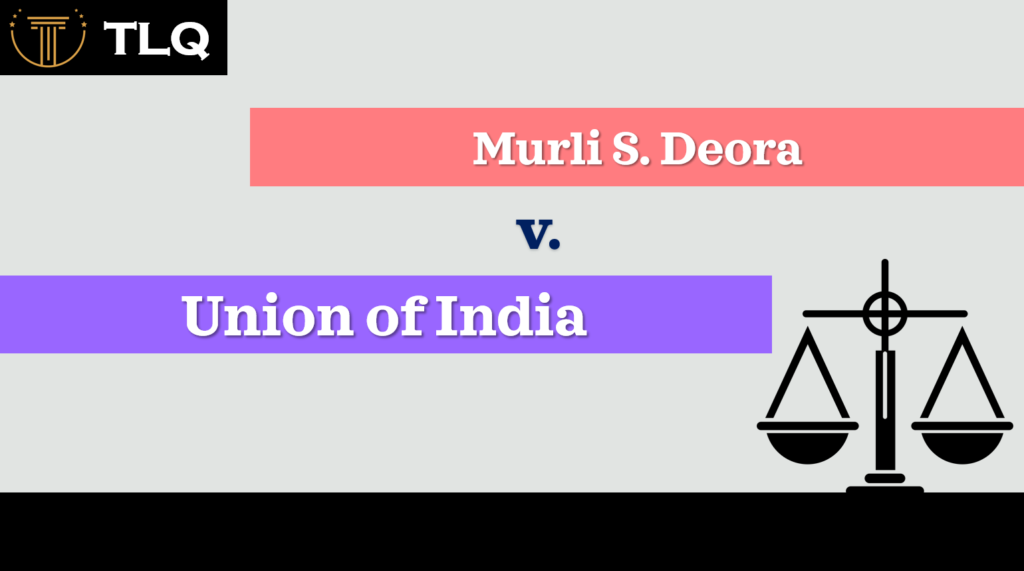Published On: October 11th 2025
Authored By: Bhargavi
St. Joseph's College of Law
ABSTRACT
Before the TRIPS Agreement, IP rights varied across nations and with the growth of Intellectual Property Rights, this led to a strain in the relationships between nations. Therefore, it was considered to be important to have a global set of rules for IP Rights to ensure an order and predictability in addition to settling disputes amongst nations, leading to the Agreement on Trade Related Aspects of Intellectual Property (TRIPS).
The COVID-19 pandemic exposed the conflict between intellectual property rights and equitable access to medicines. India and South Africa’s proposal for a broad TRIPS waiver was reduced to a limited relaxation of Article 31(f), permitting restricted vaccine exports under compulsory licences. For India, with its strong vaccine capacity, the waiver offered little benefit, while its narrow scope and added conditions limited global impact.
INTRODUCTION-
A key instrument in the field of International Intellectual Property Law, is the Agreement on Trade Related Aspects of Intellectual Property (TRIPS) which is a foundational document for the regulation of different types of Intellectual Property worldwide. The Agreement has established minimum standards for the availability, scope and use of the seven forms of Intellectual Property which are: Trade Secrets, Trade Marks, Geographical Index, Patents, Industrial designs, layout designs and Copyrights.
The global, research-intensive pharmaceutical sector and knowledge-based countries like the United States pushed for this agreement, which established a foundation of safeguards for intellectual property rights, including copyrights and patents. Prior to this negotiation, pharmaceutical product patent protection was not recognised in more than 50 nations. This was altered by the TRIPS Agreement, which increased these standards for all except the least developed nations following a ten-year transition period. By 2005, middle-income nations like India had complied.
WHY WERE TRIPS AGREEMENT WAIVERS NEEDED DURING COVID-19?
Corona Virus in short, Covid-19 is a contagious disease which spread world-wide causing a pandemic. The World Health Organisation recommended a simplified vaccine strategy which would be accessible and economical for all worldwide. The Covid-19 global emergency was the fastest vaccine rollout the world has ever seen and represent a significant medical achievement. However, with a major accomplishment came its own complications with regards to Intellectual Property Rights.
One manufacturer to supply vaccines worldwide was considered impractical and sharing the combination to make covid-19 vaccine was crucial to scale up production world-wide as well as ensure the production of second-generation vaccines for the emerging mutants of Sars CoV-2. Further, the initial distribution of the Covid-19 vaccines was unequal whereby, the high-income countries secured large shares of the vaccines through advanced share purchase Agreements. In October 2020, a number of developing nations, led by South Africa and India, sought a temporary relaxation of several TRIPS Agreement terms in response to this injustice. Known as the TRIPS waiver, this proposal aimed to permit WTO countries to forego patent protections and other intellectual property rights for Covid-19 tests, treatments, and vaccinations for the length of the epidemic. The objective was to increase global supply and access, especially in Low- Middle Income Countries, by removing financial and legal obstacles to local production of vaccines and treatments.
WHAT WAS INDIA’S STANCE ON THE TRIPS WAIVER DURING THE COVID-19 PANDEMIC?
India and Africa proposed at the World Trade Organisation in October of 2020 to waive off certain provisions of the TRIPS Agreement temporarily, relying on Article IX of the WTO Agreement, to address shortages of products required for covid-19 treatment. The objective behind such a proposal was to enable the low-income generating countries to manufacture generic versions and increase local production and address the unequal distribution of vaccines. Although the proposal was supported by over 100 World Trade Organisation members and global health Advocates, it received opposition from the high-income generating nations like the EU, UK and Switzerland citing concerns with regards to innovations, inventions etc.
Compulsory Licensing is a provision under the TRIPS Agreement whereby, it authorises a third party to make, use or sell a patented product without the consent of the patent owner. Article 31, clearly contemplates use of a patented product without the consent of the patent holder. However, Article 31(f) of TRIPS specifically states that the use of a compulsory licence shall be “authorized predominantly for the supply of the domestic market of the Member authorizing such use.” Under further conditions present under the TRIPS Agreement, the countries can export a part of the production, but not the bulk of it.
Notably, vaccine production is concentrated in the hands of very few countries, one of which is India. The countries which could not produce their own vaccines turned to India for aid. The original waiver request put forward by India and South Africa sought the removal of all intellectual property restrictions on every COVID-19 response tool, extending beyond vaccines alone. However, only one provision of the TRIPS agreement was relaxed being Article 31(f). Therefore, although the intention of the waiver was to succour countries which cannot produce them, conditions imposed by the waiver go beyond the TRIPS obligations. For the waiver, countries had to prove that compulsory licensing was necessary for their Covid-19 response, and most developing countries often failed the test leading to no approval even in case of emergencies. Further, before exporting vaccines made under compulsory licences, countries have to file detailed notifications with the World Trade Organisation. This is time-consuming and discourages quick action in a health emergency. Further the UK demanded that post the expiry of the waiver, vaccines produced under compulsory licensing shall not be exported. However, UK’s proposal did not make it to the final text.
Since India already possesses a robust domestic vaccine manufacturing capacity, the waiver of Article 31(f) offered little to no added benefit for Indian producers. Since, India is already well-positioned to meet domestic demand producers preferred supplying to their home market rather than producing to export under a cumbersome waiver system.
CONCLUSION
The TRIPS waiver debate highlighted the deep divide between the high-income countries and the Low-middle Income generating countries in reconciling intellectual property rights with public health needs. India, alongside South Africa, initially championed a bold waiver that aimed to ensure global solidarity and equitable vaccine access. However, the final WTO decision fell short, restricting itself to a limited relaxation of Article 31(f), weighed down by procedural hurdles and narrow applicability. For India, the waiver offered little added value, given its established vaccine manufacturing base, but for many low- and middle-income countries, the conditionalities effectively blocked access rather than enabling it.
REFERENCES
- ‘The TRIPS Agreement and Its Impact on Intellectual Property Laws in India’ (Arooj Law, 2 April 2024) https://aroojlaw.com/kb/the-trips-agreement-and-its-impact-on-intellectual-property-laws-in-india/ accessed 12 August 2025
- ‘COVID-19 Vaccines’ (World Health Organization) https://www.who.int/emergencies/diseases/novel-coronavirus-2019/covid-19-vaccines accessed 13 August 2025
- ‘WTO TRIPS Waiver for COVID-19 Vaccines’ (Johns Hopkins Bloomberg School of Public Health, 10 May 2021) https://publichealth.jhu.edu/2021/wto-trips-waiver-for-covid-19-vaccines accessed 14 August 2025
- Arnold Vahrenwald and Giovanni A Pedde, ‘WTO Waiver Discussions and the TRIPS Agreement – Chapter 3’ (UGHJ, March 2025) https://ughj.unicamillus.org/en/special-issue/wto-waiver-discussions-and-the-trips-agreement-chapter-3/ accessed 15 August 2025
- ‘Grant of Compulsory License in India: Its Provisions and Need in Several Industries in India’ (IIPRD, 19 March 2024) https://www.iiprd.com/grant-of-compulsory-license-in-india-its-provisions-and-need-in-several-industries-in-india/#:~:text=Article%2031%20of%20TRIPS%20deals%20with%20the%20concept,title%20%E2%80%98Other%20Uses%20Without%20Authorization%20of%20Right%20Holders%E2%80%99 accessed 16 August 2025
- WTO, Agreement on Trade-Related Aspects of Intellectual Property Rights (TRIPS Agreement) https://www.worldtradelaw.net/document.php?id=uragreements/tripsagreement.pdf&mode=download accessed 12 August 2025
- ‘TRIPS Waiver: How India Abandoned Its Own WTO Proposal’ (The Wire, 28 June 2022) https://thewire.in/health/trips-waiver-how-india-abandoned-its-own-wto-proposal accessed 14 August 2025




